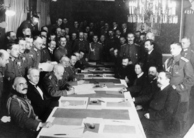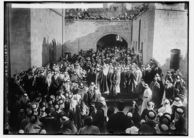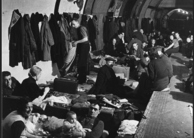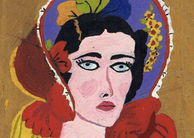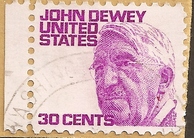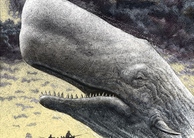|
2011 Volume 3 Issue 3
2011, Vol. 3 No. 03
Erving Goffman (June 11, 1922 – November 19, 1982) left an indelible imprint on contemporary sociological theory and research. Discourse on the intellectual roots of his dramaturgical approach tends to position Goffman within the school of... Read Article »
2011, Vol. 3 No. 03
When investigating the effect of gaze direction on facial expressions of emotion, previous imaging research indicated that dynamic presentation of stimuli produced higher amygdala responses (Sato, Kochiyama, Uono, & Yoshikawa, 2010). A behavioral... Read Article »
2011, Vol. 3 No. 03
On 5 December 1995, Jean-Dominique Bauby suffered from an abrupt massive stroke that severed his brainstem. The stroke disconnected his brain from his spinal cord, and rendered the editor of the French Elle quadriplegic and mute. By communicating... Read Article »
2011, Vol. 3 No. 03
As many cultural studies theorists have noted, identity is problematic (Hall, 1989; Ang, 2001; Brah, 1996). It is ambiguous because it is in a constant state of negotiation and interpretation: ever changing, always contested, sometimes contradictory... Read Article »
2011, Vol. 3 No. 03
In two postcolonial novels, The God Of Small Things by Arundhati Roy and Secrets by Nuruddin Farah, both authors use the politics of families to paint a vivid picture of the social, cultural and political conditions of their nations. Roy and Farah... Read Article »
2011, Vol. 3 No. 03
Many theories regarding bipedalism in early hominids, as well as the advantages provided by bipedalism have arisen and have been debated. The theories are an attempt to reconstruct the past environs in which these early bipeds lived, to make a solid... Read Article »
2011, Vol. 3 No. 03
Online forums are also known as discussion boards or message boards. They enable users of a website to interact with each other by exchanging tips and discussing topics related to a certain theme. Learning through online forums is an important learning... Read Article »
2011, Vol. 3 No. 03
It is widely recognized that state security is no longer contingent upon a balance of power or the threat of conquering states, but global stability is now instead jeopardized by weak or fragile states. Fragile states represent chaos, disorder,... Read Article »
2011, Vol. 3 No. 03
The New York Times coverage of negotiations at Brest-Litovsk between January 1 and January 12, 1918, reflected the newspaper's preoccupation with Germany during wartime and her ulterior motives. It also evinced skepticism about the Bolsheviks' sincerity... Read Article »
2011, Vol. 3 No. 03
With the Great Arab Revolt in 1915, the Hashemite family was catapulted to the forefront of Middle Eastern politics and became the literal symbols of Arab unity. Even after their failure to create a single Arab state, and the defeat of Prince Faisal... Read Article »
2011, Vol. 3 No. 03
Controversy, in its etymology, expresses a significant change to something deeply rooted. Hence, differing degrees of controversy in response to immigration can be explained in terms of two main factors: 1) countries’ historical experiences... Read Article »
2011, Vol. 3 No. 03
This paper considers the combat motivations of British men during the First World War; why did men fight, and once in the trenches, continue to figh? The paper focuses on British forces, due to the amount of available material regarding Britain... Read Article »
2011, Vol. 3 No. 03
Tribal communities in India mainly consist of forest dwellers who have accumulated a rich knowledge on the uses of various forests and forest products over the centuries. According to Article 342 of the Indian Constitution, the Scheduled Tribes... Read Article »
2011, Vol. 3 No. 03
"Britain can take"[1] it refers to a film produced by the Ministry of Information in 1940, which had been originally titled “London can take it”[2] and produced for the American public. The film portrays a rather happy go lucky picture... Read Article »
2011, Vol. 3 No. 03
Gustave Flaubert’s Madame Bovary is an intricate and compelling tale of a young woman caught in the throes of romanticism, a tale full of rich imagery and authorial allusions to Flaubert’s own life. In fact, he is once quoted as saying... Read Article »
2011, Vol. 3 No. 03
John Dewey was an ingenious and significant figure whose criticisms spanned a wide range of disciplines, including philosophy, education, politics, aesthetics, and ethics. The late American philosopher Richard Rorty, in Philosophy and the Mirror... Read Article »
2011, Vol. 3 No. 03
The 2010 Colorado Senate race was one of the most contentious and hard-fought races in the country during the 2010 election cycle. Like many other races, it pitted an establishment Democrat against a tea-party backed Republican. The outcome of the... Read Article »
2011, Vol. 3 No. 03
Scholars have written a good deal about Shakespeare’s play, The Taming of the Shrew. They have presented many different interpretations of the relationship between the two main characters, Petruchio and Katherine. One interpretation states... Read Article »
2011, Vol. 3 No. 03
Violence undermines an inclusive national identity that considers those of other races, classes and creeds as compatriots, for as Mirowsky and Ross (1983: 238) note, “When other people in one’s life have become a hostile army, social... Read Article »
2011, Vol. 3 No. 03
Ahab, the monomaniacal ship captain of Herman Melville’s Moby Dick, is a man plagued by revenge. Searching the seas for the whale who took his leg and along with it, his ability to effectively assimilate into society, Ahab continually shows... Read Article »
2011, Vol. 3 No. 03
In the aftermath of mass violence and terror, nations are left in a state of disillusionment, fear, and often a lack of state legitimacy. In this atmosphere many nations have resorted to using different forms of reconciliation and peace-building... Read Article »
2011, Vol. 3 No. 03
Rebecca West’s 1918 novel The Return of the Soldier dissects the socioeconomic and psychological tensions wrought by the upheaval of the First World War. In a nuanced reiteration of the typical trope of a soldier’s return, Christopher... Read Article »
Issue Archives
2025 - Volume 17
2024 - Volume 16
2023 - Volume 15
2022 - Volume 14
2021 - Volume 13
2020 - Volume 12
2019 - Volume 11
2018 - Volume 10
2017 - Volume 9
2016 - Volume 8
2015 - Volume 7
2014 - Volume 6
2013 - Volume 5
2012 - Volume 4
2011 - Volume 3
2010 - Volume 2
2009 - Volume 1
|






